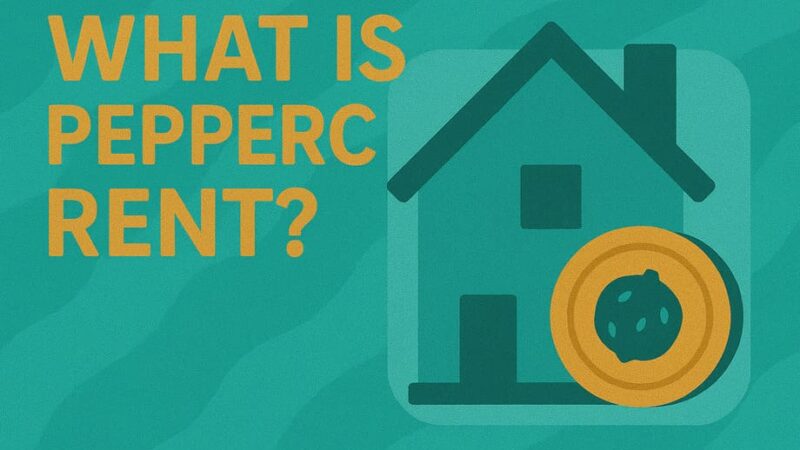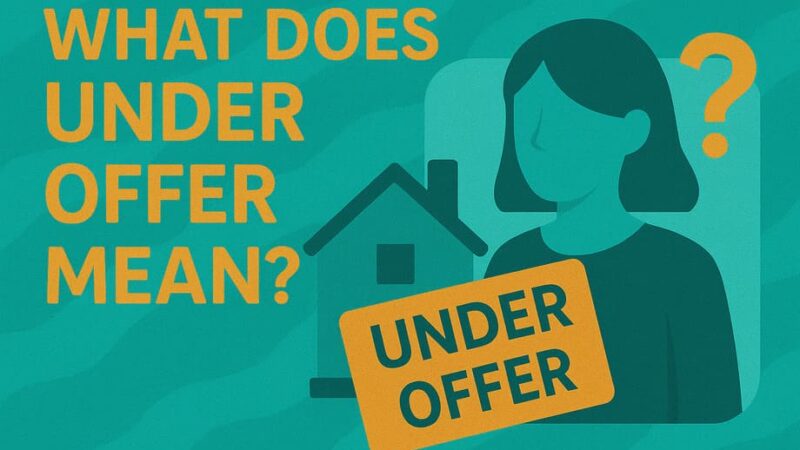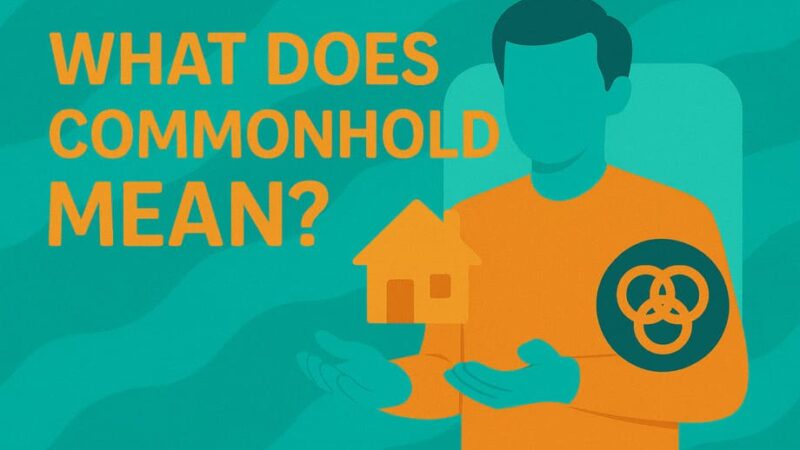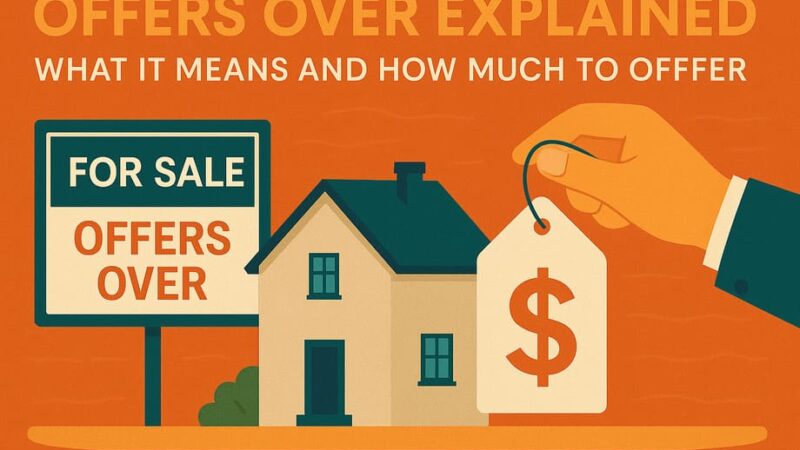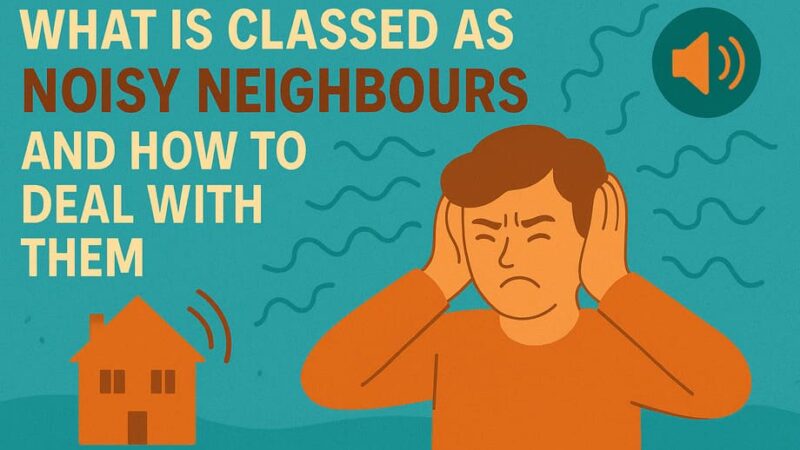What is a Probate House Valuation? A Complete Guide
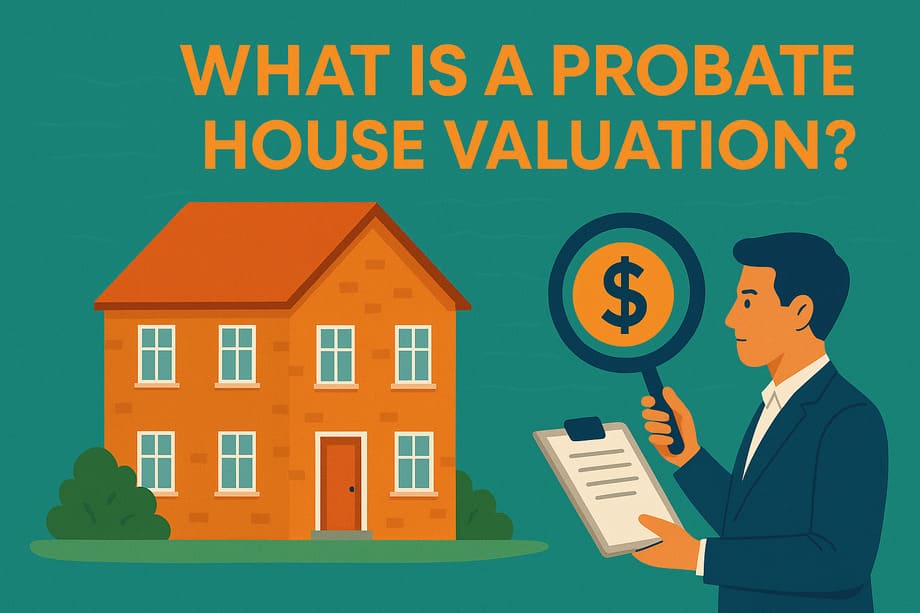
Dealing with property matters after losing a loved one can feel overwhelming. Understanding probate house valuations is a crucial first step in managing their estate. This guide explains what a probate valuation is, why it’s necessary, how it works, and what you need to know as an executor or administrator.
What is a Probate House Valuation?
A probate house valuation is a property assessment required after someone passes away. Unlike a standard property valuation, a probate valuation determines the property’s value on the exact date of death, not its current market value.
This valuation represents the amount the property would reasonably be expected to fetch on the open market if sold to a willing buyer at that specific point in time. It’s a legal requirement for calculating inheritance tax liability and distributing the estate correctly.
Why is a Probate Valuation Necessary?
A probate valuation serves several critical purposes in estate administration:
Calculating Inheritance Tax Liability: HMRC requires an accurate valuation to determine if inheritance tax is owed on the estate. The current inheritance tax threshold is £325,000, with estates valued above this subject to 40% tax on the amount over the threshold.
Legal Compliance: Personal representatives must value the estate accurately to comply with legal requirements. Failing to provide reasonable valuations can result in penalties or disputes.
Estate Distribution: Executors need an accurate baseline to distribute assets fairly among beneficiaries according to the will or intestacy rules.
Grant of Probate Application: You cannot apply for a grant of probate or letters of administration until you’ve completed inheritance tax forms, which require the estate valuation.
Preventing Disputes: An accurate, professionally conducted valuation reduces the risk of disagreements among beneficiaries or challenges from HMRC.
Who is Responsible for the Probate Valuation?
The personal representatives of the deceased are responsible for arranging the probate valuation. This includes:
- Executors named in the will
- Administrators appointed when there’s no will
As a personal representative, you must take “reasonable care” to complete valuations for inheritance tax accurately. This means obtaining proper valuations rather than guessing, especially for significant assets like property.
Probate Value vs Market Value: What’s the Difference?
Understanding the distinction between probate value and market value is important:
Probate Value: The property’s worth on the exact date of death, unaffected by market trends after that date. This is what’s used for inheritance tax calculations.
Market Value: The property’s current worth based on today’s market conditions.
Probate values can differ from current market prices, especially if significant time has passed since the date of death or if the property requires repairs. Property markets can fluctuate considerably, meaning a house valued at £300,000 at the date of death might be worth £320,000 or £280,000 by the time it’s actually sold.
How is a Property Valued for Probate?
Professional valuers consider several key factors when conducting a probate valuation:
Property Condition
The structural condition of the property at the date of death, including any damage, necessary repairs, or ongoing maintenance issues. Well-maintained properties typically attract higher valuations than those requiring significant work.
Recent Improvements or Deterioration
Any updates, extensions, or wear and tear that could affect the value. Renovations completed shortly before death may increase value, whilst deterioration reduces it.
Local Market Conditions
Property prices and demand in the area at the date of death. The valuer examines what similar properties were actually selling for at that specific time, not current prices.
Comparable Property Sales
Prices of similar homes sold nearby during the same period. Valuers look at properties of similar size, condition, and type in the same locality to establish a fair market value.
Special Features
Unique attributes that might increase or decrease value, such as large gardens, swimming pools, parking, or non-standard construction.
Potential for Development
Whether the property or land has development potential that would affect its value to buyers.
Who Should Conduct the Probate Valuation?
You have several options for obtaining a probate valuation, each with advantages and considerations:
Estate Agents
Most estate agents provide free probate valuations. They understand local market conditions and can quickly assess property values based on recent sales.
Pros:
- Free of charge
- Local market knowledge
- Quick turnaround
Cons:
- May provide asking prices rather than realistic selling prices
- HMRC may question valuations without professional backing
- Less weight in court if disputes arise
Best for: Standard properties in areas with plenty of comparable sales, especially if the estate is under £250,000.
RICS Chartered Surveyors
Chartered surveyors registered with the Royal Institution of Chartered Surveyors (RICS) provide professional valuations following the RICS Red Book standards.
Pros:
- Professional qualifications and expertise
- HMRC more likely to accept valuations
- Greater weight in court proceedings
- Detailed, evidence-based reports
- Can negotiate with HMRC on your behalf
Cons:
- Costs typically £500+ depending on property size and complexity
Best for: Properties of non-standard construction, run-down properties requiring significant repairs, properties with development potential, high-value estates, or when accuracy is paramount.
DIY Valuation
You can research property values yourself using online tools like Zoopla and Rightmove to find comparable sale prices.
Pros:
- No cost
- Quick initial assessment
Cons:
- Higher risk of HMRC queries
- No professional backing
- May not account for all factors affecting value
- Could result in over or underpayment of inheritance tax
Best for: Estates under £250,000 where HMRC allows estimated figures, though professional valuations are still recommended.
When Do You Need a Professional Valuation?
According to GOV.UK guidance, you need a professional valuation for anything worth more than £500 if the estate’s gross value exceeds £250,000. Below this threshold, estimates can be used.
You should definitely obtain a professional valuation if:
- The estate is liable for inheritance tax
- The property is of non-standard construction
- The property is run-down and needs significant repairs
- The property sits on land with development potential
- The property is unique or there are few comparable sales locally
- The property was jointly owned and you need to calculate the deceased’s share accurately
- You want to minimize the risk of HMRC challenges
Getting Multiple Valuations
For properties of standard construction, consider obtaining valuations from at least three different estate agents and using the average figure. This approach:
- Provides a more balanced assessment
- Reduces the risk of inflated or deflated valuations
- Gives you evidence of taking reasonable care
- Strengthens your position if HMRC questions the figure
Keep all valuation reports and documentation in case HMRC requests evidence of how you arrived at the probate value.
What Happens if the Property Sells for More Than Probate Value?
If you sell the property for significantly more than the probate valuation shortly after obtaining the grant of probate, HMRC may challenge the original valuation and seek additional inheritance tax.
This situation has been a contentious issue, as property markets can change quickly. HMRC’s position is that if a property sells for considerably more within a short timeframe, the original valuation may have been too low.
Capital Gains Tax Considerations: If the estate administration is prolonged and the final sale price is higher than the probate value, you could be liable for Capital Gains Tax on the increase in value between the date of death and the sale date.
What if the Property Sells for Less Than Probate Value?
If the property sells for less than the probate value, you may be able to claim a refund of overpaid inheritance tax from HMRC. However, this only applies if:
- The property is sold within four years of the deceased’s death
- You can demonstrate the lower sale price reflects market conditions rather than a rushed or forced sale
The refund process can be complex, so consult with a probate practitioner or solicitor before making a claim. Recent shifts in property markets have increased inheritance tax refund claims, but proper professional guidance is essential.
The Probate Valuation Process: Step by Step
- Identify All Properties: List all properties owned solely or jointly by the deceased, including houses, flats, land, and commercial property.
- Gather Property Information: Collect title deeds, land registry documents, mortgage details, and any recent valuations or surveys.
- Document Property Condition: Take dated photographs showing the property’s condition at or near the date of death. Note any repairs needed or recent improvements.
- Choose Your Valuer: Decide whether to use estate agents, a chartered surveyor, or both depending on the estate’s complexity and value.
- Arrange Inspections: Valuers will need to visit the property to assess its condition and features.
- Receive Written Reports: Ensure you receive formal written valuations that comply with HMRC requirements.
- Consider Joint Ownership: If the property was jointly owned, clarify whether it was held as joint tenants or tenants in common, as this affects what portion needs to be valued for the estate.
- Complete Inheritance Tax Forms: Use the valuation figures to complete IHT205 (for estates not paying inheritance tax) or IHT400 (for estates paying inheritance tax).
- Keep Detailed Records: Maintain copies of all valuations, supporting documentation, and calculations in your master file.
Timescales for Probate Valuations
A probate property valuation typically takes between 30 minutes to two hours for the inspection itself, depending on the property’s size and complexity.
Written reports are usually delivered within 5-10 working days of the valuation visit.
The overall estate valuation process can take several months, particularly for large or complex estates involving multiple properties, trusts, or business interests.
Costs of Probate Valuations
Estate Agent Valuations: Usually free, though some may charge if you don’t ultimately instruct them to sell the property.
RICS Chartered Surveyor Valuations: Typically start from £500 including VAT, varying based on:
- Property size and type
- Location and accessibility
- Complexity of the valuation
- Whether negotiation with HMRC is required
While professional valuations cost money upfront, they can save money in the long run by ensuring accurate inheritance tax calculations and avoiding HMRC disputes.
Common Mistakes to Avoid
Using Inflated Asking Prices: Some estate agents may provide optimistic valuations to win your business. This leads to overpaid inheritance tax.
Forgetting Joint Ownership Rules: Not clarifying whether property was held as joint tenants (passes automatically to survivor) or tenants in common (deceased’s share forms part of the estate).
Overlooking Development Potential: Failing to account for land value or development opportunities that increase the property’s worth.
Not Documenting Property Condition: Without photographs and condition reports, it’s harder to justify valuations to HMRC.
Delaying Valuations: Waiting too long after the date of death can make accurate valuation more difficult and delay the entire probate process.
Ignoring Professional Advice: Attempting DIY valuations for complex or high-value properties increases the risk of errors and HMRC challenges.
Frequently Asked Questions
Is a probate valuation the same as a market valuation?
No. A probate valuation reflects the property’s value on the exact date of death, whilst a market valuation shows current worth. These can differ significantly if time has passed or market conditions have changed.
Do I always need a professional valuation?
For estates over £250,000, professional valuations are required for items worth more than £500. Even for smaller estates, professional valuations provide protection against HMRC queries.
How long does a probate valuation take?
The physical inspection takes 30 minutes to 2 hours, with written reports typically delivered within 5-10 working days.
Can I use Zoopla or Rightmove for probate valuations?
These tools can provide initial estimates, but HMRC is more likely to question valuations without professional backing, especially for larger estates.
What if HMRC disagrees with the valuation?
HMRC may query valuations and request additional evidence. Having professional RICS valuations and documentation of how you arrived at figures strengthens your position. Chartered surveyors can negotiate with HMRC on your behalf.
Do probate valuations cost money?
Estate agents typically provide free valuations, whilst RICS chartered surveyors charge fees starting from around £500. The investment in professional valuations often saves money by ensuring accurate tax calculations.
What happens to jointly owned property?
This depends on whether the property was owned as joint tenants (automatically passes to the survivor) or tenants in common (the deceased’s share is valued for their estate). Check the land registry documents to confirm the ownership type.
Final Thoughts on Probate House Valuations
A probate house valuation is a critical step in administering an estate effectively. While the process may seem daunting, especially during a difficult time, understanding what’s required helps you fulfill your duties as an executor or administrator properly.
The key is obtaining an accurate valuation that reflects the property’s true worth on the date of death. This protects beneficiaries from unnecessary inheritance tax whilst ensuring compliance with HMRC requirements.
For straightforward properties in areas with plenty of comparable sales, free estate agent valuations may suffice, particularly for estates under the inheritance tax threshold. However, for more complex situations, high-value properties, or estates paying inheritance tax, investing in a professional RICS chartered surveyor valuation provides peace of mind and reduces the risk of costly mistakes or disputes.
Take your time to gather proper documentation, choose appropriate professionals, and maintain detailed records throughout the process. These steps ensure a smoother probate process and help you fulfill your responsibilities to beneficiaries and HMRC alike.
Last Updated on October 20, 2025 by James Cartwright



